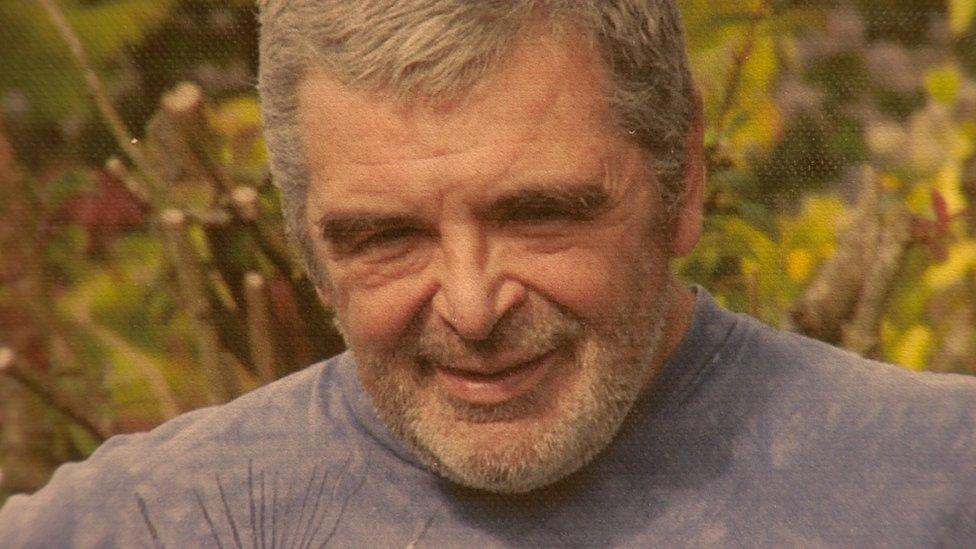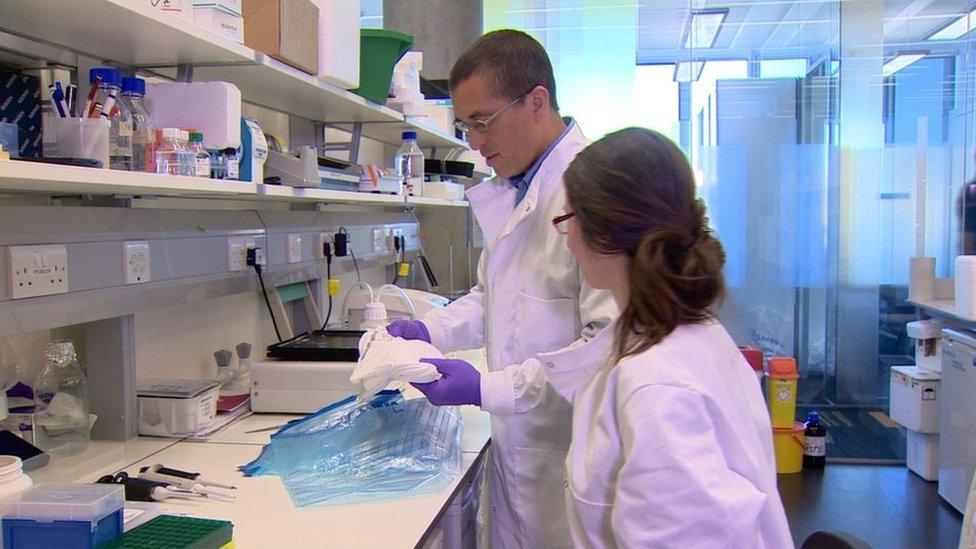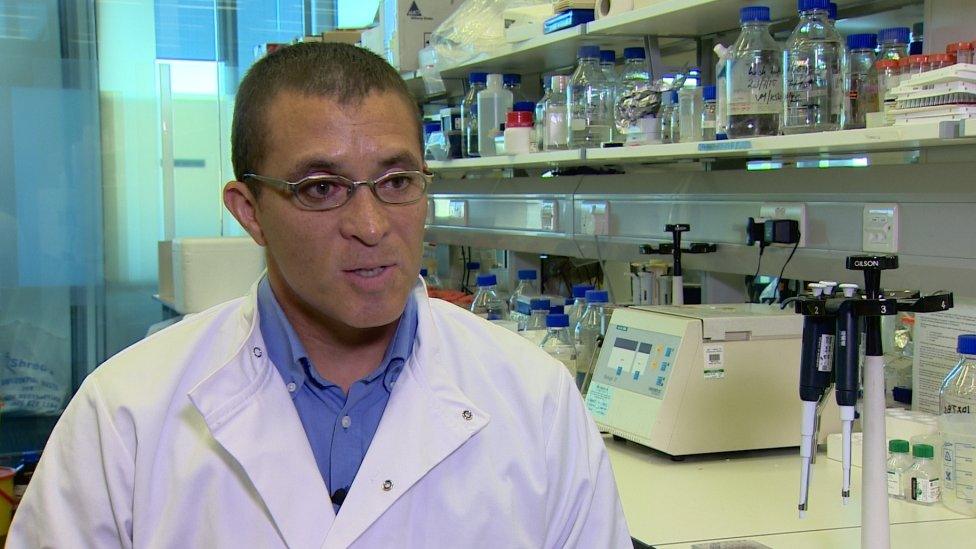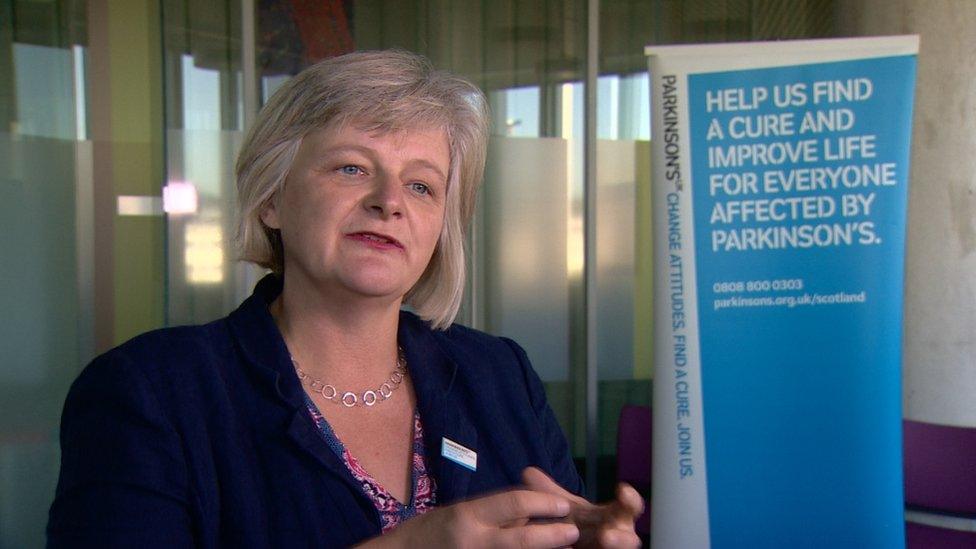The woman who can smell Parkinson's disease
- Published
Joy Milne was tested by researchers to see if she could detect people with Parkinson's through a tell-tale odour
Meet the woman from Perth whose super sense of smell could change the way Parkinson's disease is diagnosed.
Joy Milne's husband, Les, died in June, aged 65.
He worked as a consultant anaesthetist before being diagnosed with Parkinson's at the age of 45.

Joy first detected the odour on her husband Les, who was diagnosed with Parkinson's at the age of 45
One in 500 people in the UK has Parkinson's - that is 127,000 across Britain.
It can leave people struggling to walk, speak and sleep. There is no cure and no definitive diagnostic test.
Joy noticed something had changed with her husband long before he was diagnosed - six years before.
She says: "His smell changed and it seemed difficult to describe. It wasn't all of a sudden. It was very subtle - a musky smell.
"I got an occasional smell."
Joy only linked this odour to Parkinson's after joining the charity Parkinson's UK and meeting people with the same distinct odour.
By complete chance she mentioned this to scientists at a talk. They were intrigued.
Edinburgh University decided to test her - and she was very accurate.

Doctors tested Joy's sense of smell by using t-shirts which had been worn by six people with Parkinson's and six without
Dr Tilo Kunath, a Parkinson's UK fellow at the school of biological sciences at Edinburgh University, was one of the first scientists Joy spoke to.
He says: "The first time we tested Joy we recruited six people with Parkinson's and six without.
"We had them wear a t-shirt for a day then retrieved the t-shirts, bagged them and coded them.
"Her job was to tell us who had Parkinson's and who didn't.
"Her accuracy was 11 out of 12. We were quite impressed."
Dr Kunath adds: "She got the six Parkinson's but then she was adamant one of the 'control' subjects had Parkinson's.

Dr Tilo Kunath was impressed with Joy's results and is undertaking further research into the phenomenon
"But he was in our control group so he didn't have Parkinson's.
"According to him and according to us as well he didn't have Parkinson's.
"But eight months later he informed me that he had been diagnosed with Parkinson's.
"So Joy wasn't correct for 11 out of 12, she was actually 12 out of 12 correct at that time.
"That really impressed us and we had to dig further into this phenomenon."
And that is exactly what they are doing.
Scientists believe that changes in the skin of people with early Parkinson's produces a particular odour linked to the condition.
They hope to find the molecular signature responsible for the odour and then develop a simple test such as wiping a person's forehead with a swab.
The charity Parkinson's UK is now funding researchers at Manchester, Edinburgh and London to study about 200 people with and without Parkinson's.

Katherine Crawford, of Parkinson's UK, said it was an incredibly difficult disease to diagnose
A simple test for Parkinson's could be life-changing, according to Katherine Crawford, the Scotland director of Parkinson's UK.
"This study is potentially transformational for the lives of people living with Parkinson's," she says.
"Parkinson's is an incredibly difficult disease to diagnose.
"We still effectively diagnose it today the way that Dr James Parkinson diagnosed it in 1817, which is by observing people and their symptoms.
"A diagnostic test like this could cut through so much of that, enable people to go in and see a consultant, have a simple swab test and come out with a clear diagnosis of Parkinson's.
"It would be absolutely incredible and life-changing for them immediately."
Ms Crawford adds: "They and their professional colleagues would be able to discuss and arrange a treatment programme, be able to monitor the progression of the disease and treat it appropriately as it went on and it would potentially offer more opportunities for people living with Parkinson's to get involved in research."
It might have been an accidental discovery but Joy hopes it will make a real difference to people starting out on their own journey with Parkinson's.